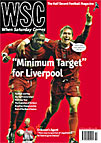 Dundee and Darlington have gone into administration after making enemies with their own ambition. Times are still tough for Cambridge United but the supporters trust is now the largest shareholder, as Tom Davies writes
Dundee and Darlington have gone into administration after making enemies with their own ambition. Times are still tough for Cambridge United but the supporters trust is now the largest shareholder, as Tom Davies writes
Any football supporters who still need reminding of the perils of roguish, “flamboyant” investors making big promises need only study recent developments at Dundee and Darlington.